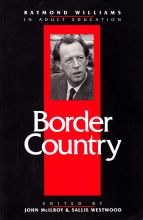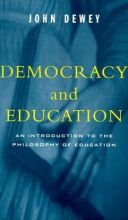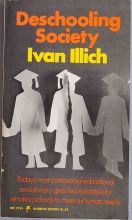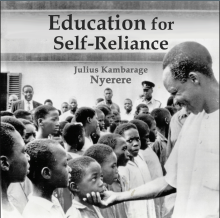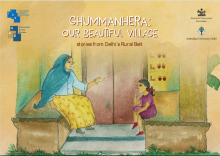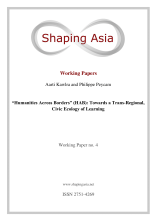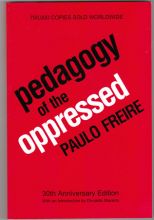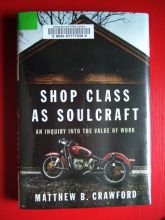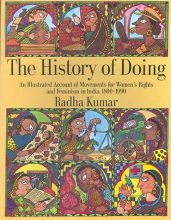Blue Alchemy: Stories of Indigo is an independent documentary film, funded by Women Make Films, a non-profit media organization. It was filmed in India, Japan, Bangladesh, Mexico, El Salvador, Nigeria, and the USA. It showcases the historical and geographic spread of indigo, both as a dye and as an idea.
Resources
Raymond Williams was a Welsh novelist, literary critic and political theorist whose work laid the foundation for cultural studies. According to Maurice Cowling, Williams along with Eric Hobsbawm, and E. P. Thompson were the chief agents of the transformation that took place in British intellectual Left from 1965 to 1985.
This video was produced by Vettiver Collective, an activist group, in Chennai, India. It is intended to bring to the awareness of the state government and civil society the need to safeguard the delicate ecosystem of the Ennore creek, a backwater located in Ennore Chennai, 20 km north of the city centre and 2.6 km south of the Ennore Port.
John Dewey remains an influential philosopher and thinker today. This seminal book along with his other works like My Pedagogic Creed (1897), The School and Society (1900), The Child and the Curriculum (1902) and Experience and Education (1938) lays the groundwork for so much of the progressive thinking around education that has happened over the last century, especially in North America.
DeSchooling Society was the first book of the 20th century iconoclast, Ivan Illich. Though he was born in Vienna, he became a Roman Catholic priest and spent most of his life working in Puerto Rico and Mexico.
Julius Nyerere (1922-1999) was a Tanzanian anti-colonial activist, educator, politician and political theorist who served as Tanzania's first president from 1964 to 1985. A proponent of African nationalism and African socialism as a result of his time as a teacher and his study of history and political economy, he promoted the political philosophy of Ujamaa ('fraternity' in Swahili) in Tanzanian legislature following Tanzania's independence from the British.
Ghummanhera: Our Beautiful Village - Stories from Delhi's Rural Belt
Center for Community Knowledge (CCK), Ambedkar University Delhi
In this co-authored working paper for the Shaping Asia Research Network of Bielefeld and Heidelberg Universities, International Institute for Asian Studies (IIAS) Director Philippe Peycam and HAB Academic Director Aarti Kawlra share their thoughts on implementing HAB as an initiative of the IIAS, with the goal of invigorating the Humanities with civic-minded pedagogies grounded in local experience, alongside university partners from Asia, Africa, Europe, and the USA.
The authors will be happy to read and respond to the feedback. Please feel free to post comments below or email me at thomas123manuel[at]gmail.com. As this is a draft paper, it is requested that the paper not be quoted or cited till the final version is published. The paper titled Intra-Regional Mobilities, Seething Xenophobia And Grassroots Pan-Africanism: Implications For Ghana-Nigeria Relations is by Kojo Opoku Aidoo & Lang T.K.A. Nubuor of the Institute of African Studies, University of Ghana. The abstract and full download of the paper can be found below:
This 13-minute film on Community Forest Rights of the Maldharis in Kutch, India was produced by the students of Srishti Films, Srishti Institute of Art, Design & Technology, Bangalore.
One of the foundational texts of critical pedagogy, Pedagogy of the Oppressed was a revolutionary text. Paulo Freire takes a hatchet to traditional methods of pedagogy with the aim of creating a new kind of education.
In early 2017, the Centre for Community Knowledge (CCK) at Ambedkar University, as a part of the Urban Knowledge Network Asia (UKNA) roundtable in Delhi, produced this process film, discussing the methodology and experience of putting together a pop-up neighbourhood museum at Mehrauli.
Writing for Slate.com, Michael Agger introduces Shop Class as Soulcraft: An Inquiry Into the Value of Work thus: “When Matthew Crawford finished his doctorate in political philosophy at the University of Chicago, he took a job at a Washington think tank.
Published in 1993, The History of Doing: An Illustrated Account of Movements for Women’s Rights and Feminism in India, 1800-1990 by Radha Kumar is a landmark work on the women’s movement in India. It was brought out by Kali for Women, India’s first feminist publishing house, which, along with its imprint Zubaan, has been responsible for some of the finest scholarship on women in South Asia.

